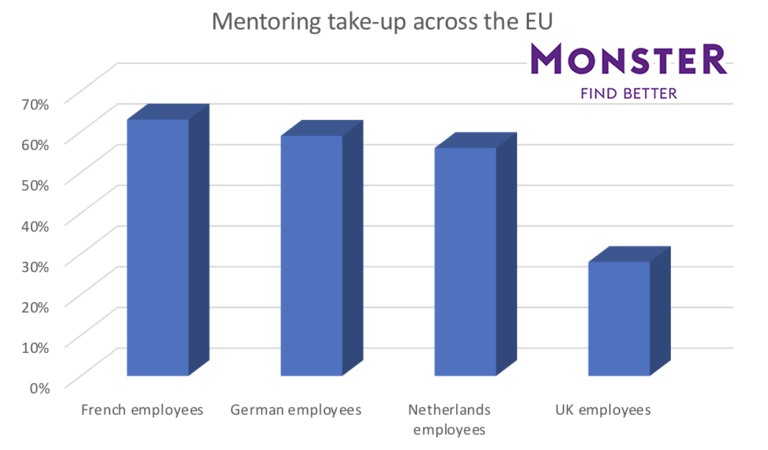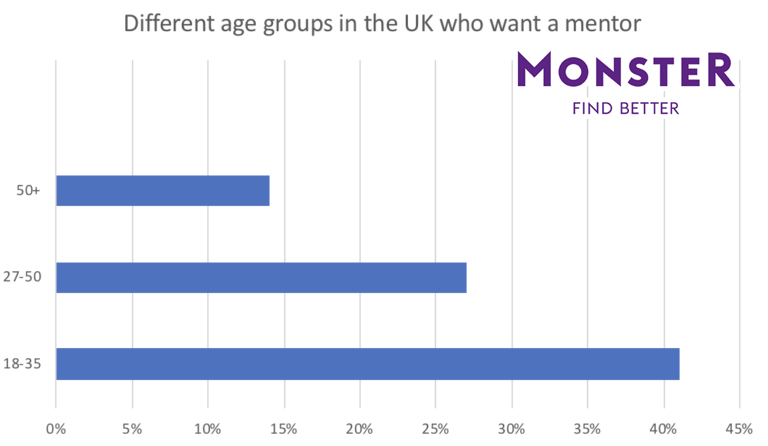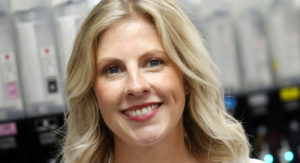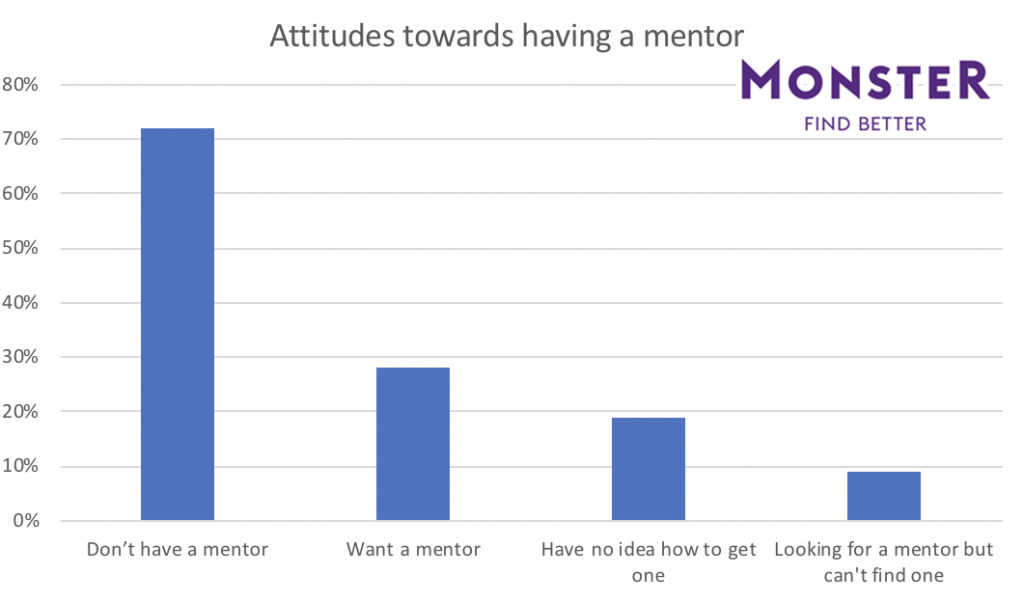Getting support for your business is vital, but UK entrepreneurs aren’t making the most of the business mentoring experience that’s out there.
Perhaps the typical British attitude of not wanting to put people out lies behind it. However, there’s no need to feel shy.
Scaling up a company is hard and complex. You are hiring new people, exploring new tech, signing contracts and probably have a new strategy. All this responsibility could prove too stressful alone.
‘A problem shared is a problem halved’, the old saying goes. So why not collaborate with an old hand outside of work?
According to the OECD, 66 per cent of Canadian firms saw an increase in financial turnover following sessions with a mentor.
Your mentor could be someone in a senior position that you used to work with and admired at the time. Or working with an executive coach might be your best bet.
Your current company could also help with an internal leadership work programme; pairing you up with someone who can help.
Before you approach someone for business mentoring to improve your business strategy, it’s important to note that different organisations will offer different services. Some will be free, while others will require a membership fee while others will be purely commercial (business advisory).

In this guide, we hear from four business leaders who have hired a mentor, why they did it and how it has helped them grow. We also take a look at the opportunities that are out there in the UK to match you to the perfect mentor.
Business mentoring benefits
Geoff Lawrence, marketing director of Vistage International UK makes a strong case for why it’s better to have a mentor than not.
Imagine you are on jury service and the fate of the defendant relies on your decision on whether or not they are guilty of a serious crime or not. Everything is at stake for the individual in the dock. Now, imagine also that instead of the usual 12 jurors, it’s just you. Can you be confident that without collective reasoning that you’d be able to come to the right decision with the information you’ve been presented with? And do so without bias?
This kind of pressure is an everyday reality for many business owners and leaders across the country. Business leaders (including CEOs and managing directors) are constantly tested with challenges that they haven’t encountered before. A majority elect to take on these challenges alone.

Don’t go it alone
The idea that being a CEO is a solitary pursuit is a misapprehension. Richard Branson once said, ‘Many people think that an entrepreneur is someone who operates alone, overcoming challenges and bringing his idea to market through sheer force of personality. This is completely inaccurate. Few entrepreneurs — scratch that: almost no-one — ever achieved anything worthwhile without help.’
According to a study conducted at Stanford Graduate School of Business, nearly two-thirds of CEOs do not receive outside leadership advice. There are a number of reasons for this, chief among them being the difficulties many business leaders face in finding genuinely impartial advice.
The people you may turn to in and around your business generally (and through no fault of their own) have vested interests that will influence the counsel they impart. At its most basic level, few employees are prepared to take the potentially career-limiting step of directly challenging the decision-making of their leader.
Even management consultants held on retainer will be wary of jeopardising their relationships (and thus their retainer) by challenging the ‘sacred cows’ in an organisation. That’s where the power of mentoring and peer-to-peer meetings come in to play.
According to a recent report from the Scale Up Group, nine out of ten business leaders in high-growth companies see peer-to-peer networks as a vital source of help. Peer-group mentoring offers business leaders a safe environment to challenge new ideas and share concerns with neutral parties, all in confidence. Working together with a group of mentors from diverse backgrounds and sectors who understand the complexities of the position, provide different perspectives to shared problems and opportunities, eliminates silo thinking and inspires improved personal and organisational performance.
The data below shows that nearly 30 per cent of people in the UK want a mentor.
Accountability
While larger organisations are often structured so that CEOs and board executives are accountable to their chairman and shareholders, in many small businesses, the managing director/owner/founder is often answerable to no one in particular.
“Our members describe mentoring groups as ‘the board you can’t afford’ and even, in some cases, ‘therapy for CEOs’”
By working with mentors or peers in a manner that’s highly selective, strategic, and structured, CEOs can transform commonplace peer influence into something much more powerful. If CEOs can have their thinking usefully challenged by an experienced party, the result can only be a well-thought-through solution to the issues that keep them up at night.
Sharing their concerns with mentors means leaders also become accountable for their actions. Once a mentor or business coach know of the plans, they will hold their mentee or peer to these actions, either until it is through to completion, or until it becomes apparent another course of action is required, at which point they go back to the group for further input.
Teaching top dogs new tricks: does business mentoring work?
Unlike books and other leadership training materials, peer-supported learning is not based solely on case studies or focusing on what happened in the past. Instead, much of the learning is based on what your peers are experiencing right now. Experience is undoubtedly vital, but the nature of business is that the challenges you face today or tomorrow are not always those that others encountered yesterday.
Furthermore, when CEOs become exposed to the value that comes from engaging with their peers, their view of the business starts to change. Rather than working in their business, they start to work on their business. An outside perspective is critical for business leaders, who can sometimes have a tunnel vision view of their companies. Business mentoring can help them identify operational gaps and industry opportunities that may well have gone unnoticed.
While there are countless resources available for CEOs who want to learn and grow, one-to-one coaching or learning in a peer community offers a safe space for leaders to learn practical ideas borne out of experience.
“No CEO, business owner, or organisational leader should ever have to go it alone”
Studies and anecdotal information suggest CEOs and other business leaders involved in a mentorship programme mostly perform considerately better than industry averages.
Our research has shown that members consistently grow 2.2 times faster than non-member companies in their industries.
The data below shows that millennials are the most likely to want a mentor (41 per cent) while 27 per cent of 27-50 year olds want a mentor.

Tapping into the experience and wisdom of those that have come before or those going through similar issues can only be helpful for an individual, a CEO and a company when navigating what will be one of the biggest challenges they will face. Because, when business leaders fail to decide or act wisely, their companies undoubtedly suffer.
Find out more: Vistage
Video: Kevin Horne at business support group NWES explaining the benefits of business mentoring
https://www.youtube.com/watch?v=AhMzdEqn6Gw
Celebrity mentors: Monster.co.uk found that 18 per cent of respondents to a recent survey wanted Barack Obama as a mentor while 3 per cent would pick Donald Trump.
Mentoring Case Study: Gate 7

Kate Wickham, managing director of North-east based, family business and manufacturing company Gate 7 on how a ‘people person’ from outside the firm helped to get her ready for leadership.
I joined Gate 7- an industrial automative business- straight out of university in 2005 as a business development executive and I had aspirations to become managing director. However, to do so I realised I had to develop my confidence further.
Luckily, I managed to secure fantastic business mentoring from Malcolm Casey in the lead-up to me becoming MD of Gate 7. He quickly became a bit of a confidant to me and I was able to approach him for advice which I found extremely useful because I was able to talk to someone outside of the organisation.
Managing the family business
We met once a month for 18 months and we discussed how to handle certain business situations, such as how to manage members of staff and how to communicate with government officials more effectively. At the time I was in my late twenties and it was incredibly useful to talk to someone outside of work. As being someone in a family business you get a lot of stick for being entitled and having a silver spoon being shoved somewhere very unpleasant, so turning to someone outside the organisation was a good avenue for me!
Growing confidence outside of work
Malcolm came from a management consultant background, and was the Oliver Wight operations director at the time. He was excellent when it came to managing people. The product he dealt with was worktops, which is different from me, but in any manufacturing company, you are working with men, machinery and materials.
“Most of what we covered in mentorship was about developing my confidence in preparation for moving into the managing director role”
Unfortunately, once I became MD he passed away and I’ve never been able to replace him.
I think it’s great to do business mentoring because having the opportunity to run things past somebody else who has ‘been there and done it’ is so important. It’s really important to trust that person and the advice they have given you.
Mentoring Case Study: The Hakim Group

Imran Hakim, entrepreneur and founder of The Hakim Group, discusses the value of bringing an outside perspective into your business.
I opened my first optometry practice a little over 14 years ago in Bolton, my hometown. Starting from scratch, one of the key challenges was to get to grips with the basics of running a business, from building up a customer base, to setting up a supplier network, and working with the NHS.
The optometry market is highly saturated, and as a result, very competitive. It’s also an ageing profession, particularly in the independent sector, so many owners are looking for a safe pair of hands to take on the business as they consider their exit plan.
I spotted an opportunity to take on exactly this type of company and effectively super-charge them with a great back-office team to support on everything from digital marketing, through to HR, finance and supply-chain management. In short, we do the heavy lifting on the areas the business needs to operate successfully, while the optometrists and their teams can focus on delivering the type of outstanding service and care which keep the customers coming back.
Focus on personal development and self-improvement
“I’ve always had a thirst to improve my knowledge and understanding of the world”
I’m a firm believer that my ability to grow my business is directly proportionate to my ability to grow my own skill-set as well as that of the people around me.
A friend of mine told me about a business mentoring group called Vistage that he had been attending. Vistage brings together small groups of business leaders facing similar challenges and problems and encourages them to work through operational and personal challenges in monthly sessions. Sessions are organised and run by a Chair, typically a former CEO, who has faced similar challenges in their career to the ones we are facing now.
I went along to see what the company was doing. We had a speaker that day called Mark Robb, who gave a session on customer experience. The topic struck a particular chord with some of the challenges I had been facing at the time. Word of mouth is a very powerful tool in the optometry business where referrals often come through recommendation. At the time, we didn’t have an effective means to measure or amplify the feedback and data we were generating as a result of customer feedback.
New business ideas
When Mark started to talk about Net Promoter Score, it led to a broader discussion in the group. I had a lightbulb moment. After leaving the day’s session I took what I had learned and started to develop a piece of software which would allow us to capture and automate customer feedback. This made it far easier for us to do something tangible with positive comments as well as helping us to identify and react quickly to service failures. We actually ended up spinning this out into a standalone SaaS called Grohawk, which has become very successful in its own right.
I’ve been a member of Vistage now for coming up to three years and have been part of the same group throughout that time. It takes a little bit of time for you to warm up and start discussing quite intimate details about your business. But over time you start to build a level of trust and rapport with the people around you, and they start to share an equivalent amount of information with you as well. It becomes a lot easier to open up in ways you might not in other situations.
The group has evolved and changed over time with new people coming in. That’s helped to keep things fresh and I’ve enjoyed the regular in-flow of new perspectives. I’ve heard of some people staying in groups for 15 years. For me personally, however, I like an in-flow of fresh ideas.
Right advice has been key
A year and a half into my business journey I’d achieved the target I had set myself and needed to establish a new vision for the company. I was able to create that vision within the group and develop a plan on how that could be clearly communicated through our organisation at every level.
I took the advice I received from the group and one of our guest speakers and adapted it so that it was right for us, communicating a vision to double our business in 24 months. We’ve since grown by 150 per cent in 18 months with almost over 100 stores and turnover of £50 million.
“The challenge ahead of us now is to maintain the same culture and start-up mentality which got us to where we are today. Rest assured, I won’t be tackling that challenge on my own”
Entrepreneurs are typically a gritty and tenacious bunch, so there can be a temptation to try to tackle things on your own. But in today’s fast-paced environment, that’s a very hard road to follow. When you’re facing a challenge in your business, there are always going to be people who have faced a similar issue and have come out the other side. Taking the opportunity to really lean on the experiences of others that have encountered those challenges, can fast-track your own thinking and help you make the right decision.
The people in my business mentoring group are all business leaders, while Adrian Sharp, who chairs our group was a CEO for 20 years. They don’t have an agenda, they’re not trying to sell me anything, they’re just there to offer a different perspective. They’re living through the same issues keeping you awake at night and have the same responsibilities on their shoulders. Having the ability to speak to people who ‘get it’ is invaluable.
Mentoring case study: Flame Heating Spares

John Savage, CEO of Flame Heating Spares explores how a business mentor helped him to further refine a five-year business plan and find the most effective location for his business.
The company works in heating spares, commercial heating and plumbing, renewable energy and bathrooms, for both trade customers and the general public.
Having started out as a warehouse assistant and working my way up to become an area manager for a national plumbing merchant, I went it alone.
I had a solid career at a national firm, with a good wage, but I just felt the time was right to go out on my own. Together with Gary Riseborough, who at one time was my boss, we established Flame Heating Spares and although a daunting prospect at first, it has turned out to be one of my finest accomplishments.
We both possess many years’ experience and knowledge of the market and industry, but the difficulty at first was raising finance and putting together a solid business plan – which I had done in the past, but on the other side of the fence and not with my with own investment.
Help with a business plan
At the start of my business career, I came across business coach and mentor, David Cliff, at a networking event and asked if he could support the operational side of things, including advice and the planning of a business plan and strategy.
One of the most influential pieces of advice and guidance David has given me and Flame, was when the company was searching for a new site in the North East. One of my ambitions from the outset was to launch a branch in my hometown – South Shields, a coastal town nearly four miles from Newcastle upon Tyne.
Good business location vital
This included visiting several locations and advising on the branch size. The significance of the launch to the company is that it was Flame’s third trade counter opening, in less than three years of trading.
David, who founded business coaching organisation Gedanken, helped identify an area for one of our outlets, in South Shields, and has refined the ways in which we operate and tailored my five-year plan for Flame.
His ongoing advice and guidance have been instrumental in shaping the way in which we do business and, on a personal level, he has helped with my own development. David is not only my mentor, but a friend too.
Raised company profile
Having helped to shape my business plan, as well as advising on alternative forms of raising finance, as opposed to giving up capital in his company, Flame has continued to flourish.
“David was also instrumental in me engaging with various marketing companies, including PR, to push out the key messages of the business to numerous platforms. This has helped raised the profile of the company, myself and our staff”
Our revenue was £14.5 million in 2017, up from £6.4 million in 2016 and £2.4m in 2015. We now employ 50 staff, working across 11 trade counters in the North East and Scotland, including one bathroom showroom, in Durham.
Mentoring Case Study: Haines Watts

Here, Karen McLellan, managing partner of accountancy firm Haines Watts describes how working with a mentor helped with delegating crucial tasks to staff effectively.
For business owners, the loneliness of command can be very real. With many people looking to you for both guidance and reassurance, you often find yourself seeking out a bit of reassurance of your own. Unfortunately, when you’re the boss there’s not always an obvious place to turn.
As managing director of Haines Watts from its early days, I have overseen and managed many aspects of change and development: a merger, acquisition, rapid growth, along with the many cultural changes these bring. Throughout this process, with all its highs and lows, having a mentor has helped to keep me on track, keep focused and bridge the gap from working in the business to working on it; not to mention helping me develop as an individual as well.
Paving the way with a leadership development programme
Four years ago Haines Watts implemented a senior leadership development programme, this is where my journey began. During this program, I worked with a coach which led me to understand the importance of also having a mentor to speak candidly to about personal issues in the same way we address business issues.
Andy Minifie has been with Haines Watts for over 30 years and has a wide range of experience in areas that my own expertise and confidence might be lacking. I have grown to see him as my mentor, drawing on his wisdom and using him as a sounding board wherever a fresh pair of eyes and some real perspective is needed. That goes for both for both day to day issues as well as long-term strategic initiatives.
Always learning
“Initially, I sought out a mentor to work to combat the isolation that I felt”
As the director of my business I felt like I needed to have the answers, like I didn’t have anybody to voice my own concerns to, or talk through difficult business decisions with.
Through working with Andy, I was able to clearly define what my goals were. Ultimately, the most nerve-wracking part of this was truly admitting to myself what I wanted to achieve. I had gained the confidence to not worry about whether I was setting the bar too high, instead I was able to move forward without doubting myself. You often know more than you think you do, and Andy was instrumental in helping to validate my objectives.
One of the best things about that was learning to lose my fear of failure. It is easy to get caught up in worrying how a misstep will reflect on you personally and how this might change others opinions of your aptitude. But in reality, if you try something new, step out and take risks even with the right level of trust in your judgement, it is not going to go perfectly every time. In the end, you’re never going to learn to grow without making mistakes and learning from them.
Pass the baton
As a business owner you often get used to managing all the responsibility yourself, but as the business grows this becomes increasingly difficult to uphold. It became obvious that I needed to delegate some critical responsibilities. While I have always had confidence in my people I found the idea of releasing some core tasks really challenging.
One of the best pieces of advice Andy has ever given me was to do nothing – let the scenario play out. Once you have a trusted team around you, more often than not, it is better to resist the natural instinct to simply react to situations. While it does take practice, the ability to ignore the overarching pressure to perform ultimately leads to the best resolution.
Never cross the finish line
Most business owners hope that their businesses will never stop growing and evolving. I think we should hope that same thing for ourselves. Regardless of what we have already encountered and overcome there will always be new experiences around the corner.
If I had to sum up the two key things I have taken away from my own experience with mentorship, the first would be that there’s always something else to learn and someone to learn from. Secondly, owning a business is a test of courage, and that comes from within. Lots of us have what it takes to run a business, but having someone you trust validate your toughest decisions goes a long way to helping you believe it.
We hope you have enjoyed hearing about the experiences of the company directors featured in this piece. If their stories have prompted you to consider getting a mentor, we’ve put together a list of organisations (please see below) that work primarily with fast-growing businesses.
What is a business mentor?
A mentor is a trusted advisor that you talk to in order to resolve any issues or problems in your business. You can talk to them face-to-face, over the phone, by email or via a web service like Skype. It’s easy to get mentoring and coaching mixed up but the difference is simple. A mentor will tell you what he/she thinks you should do, based on their experience. But a business coach will give you two or three different options that you could take when you’re tackling a problem and you choose which option to take.
How to begin
The Business Finance Taskforce set up a useful, yet dated looking website called Mentors.me which allows national businesses to search for available mentors based on their business life stage and location. All of the mentor listed on the website are quality assured and the website has strong principles which all should stick to. These principles can be found here.
According to the website, there are nearly 100 mentoring organisations tailored specifically for growing businesses in the UK.
Table: Ten UK business mentoring programmes
|
Name |
What |
Contact |
|
|
|
|
|
Business Growth Hub |
A free face-to-face service for the growing business community in |
Churchgate House 56 Oxford Street Manchester M1 6EU England T:0161 3593050 |
|
Capital Enterprise |
London-based mentoring service which offers up to |
Gordon House, 29 Gordon Square London WC1H 0PP T: 0207 679 4598 |
|
Business West |
Bristol-based mentoring and coaching service for high growth |
Leigh Court Business Centre Abbots Leigh Bristol BS8 3RA England T: 0127 537 0760 |
|
Let’s do Business |
A mentoring and business advisory service for |
8th Floor Ocean House 87-89 London Road St Leonards on Sea East Sussex TN37 6LW England T: 0844 415 2272 |
|
Rockstar Hub International |
London-based mentoring group |
Rockstar Hub International The Shard Level 24 32 London Bridge Street London SE1 9SG T: 0203 283 8585 |
|
Designated Associates |
Mentoring service for entrepreneurs in Brighton |
1st Floor, Vale House Vale Park New Brighton Wirral CH45 1LZ England T: 0151 653 3338 |
|
Business Mentoring Services |
Business mentoring service to SME’s and director/executive coaching |
31 Cornwall Road Salisbury SP1 3NH England T: 0208 242 6271 |
|
Scottish Chambers of Commerce |
Business and mentoring matching service based in |
30 George Square Glasgow G2 1EQ Scotland T: 0845 609 6622 |
|
idb group |
Cambridge-based mentoring group with over 200 mentors – provided free of charge. All mentors are ex-directors/ex-managing directors |
Compass House Vision Park Chivers Way, Histon Cambridge CB24 9AD England T: 01223 257777 |
|
Enterprising Women |
A business mentoring programme for women, based in Cambridge |
St John’s Innovation Centre Cowley Road Cambridge CB4 0WS England T: 0800 0121 365 |
More options for business mentoring
You could head to Connect Mentors which matches you with three available mentors in your sector based on your age, qualifications, work experience, location and work interests. You can then message that mentor what new skills you are hoping to acquire. They should get back to you within a few days.
Reverse mentoring
Another option you could consider is reverse mentoring which flips the normal business mentoring process upside down and pairs a senior member of staff with a younger one or millennial.
Accelerators
With 171 accelerators currently active in the UK, according to B2B marketplace Market Inspector, these can be very useful for entrepreneurs looking for a helping hand as 81 per cent of them provide mentorship. The infographic below shows how much investment is available from accelerators, what sectors they focus on and successful UK companies such as TransferWise who have been through the accelerator route.










